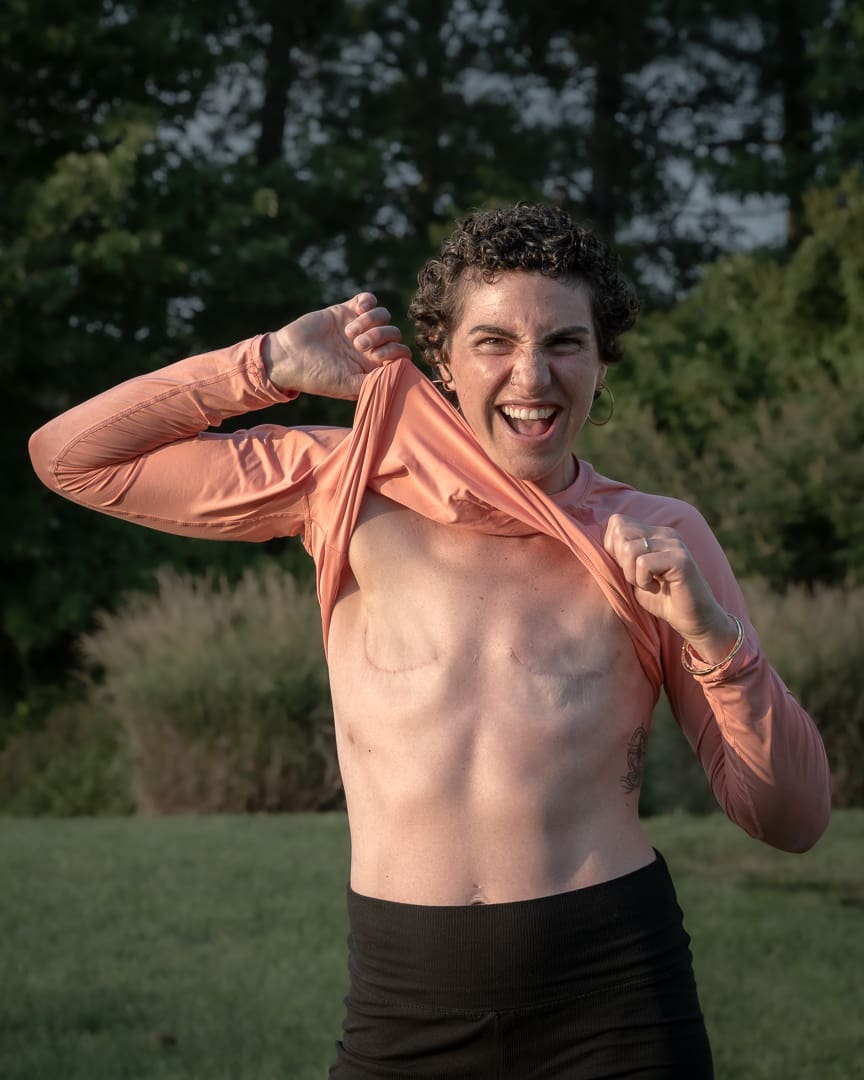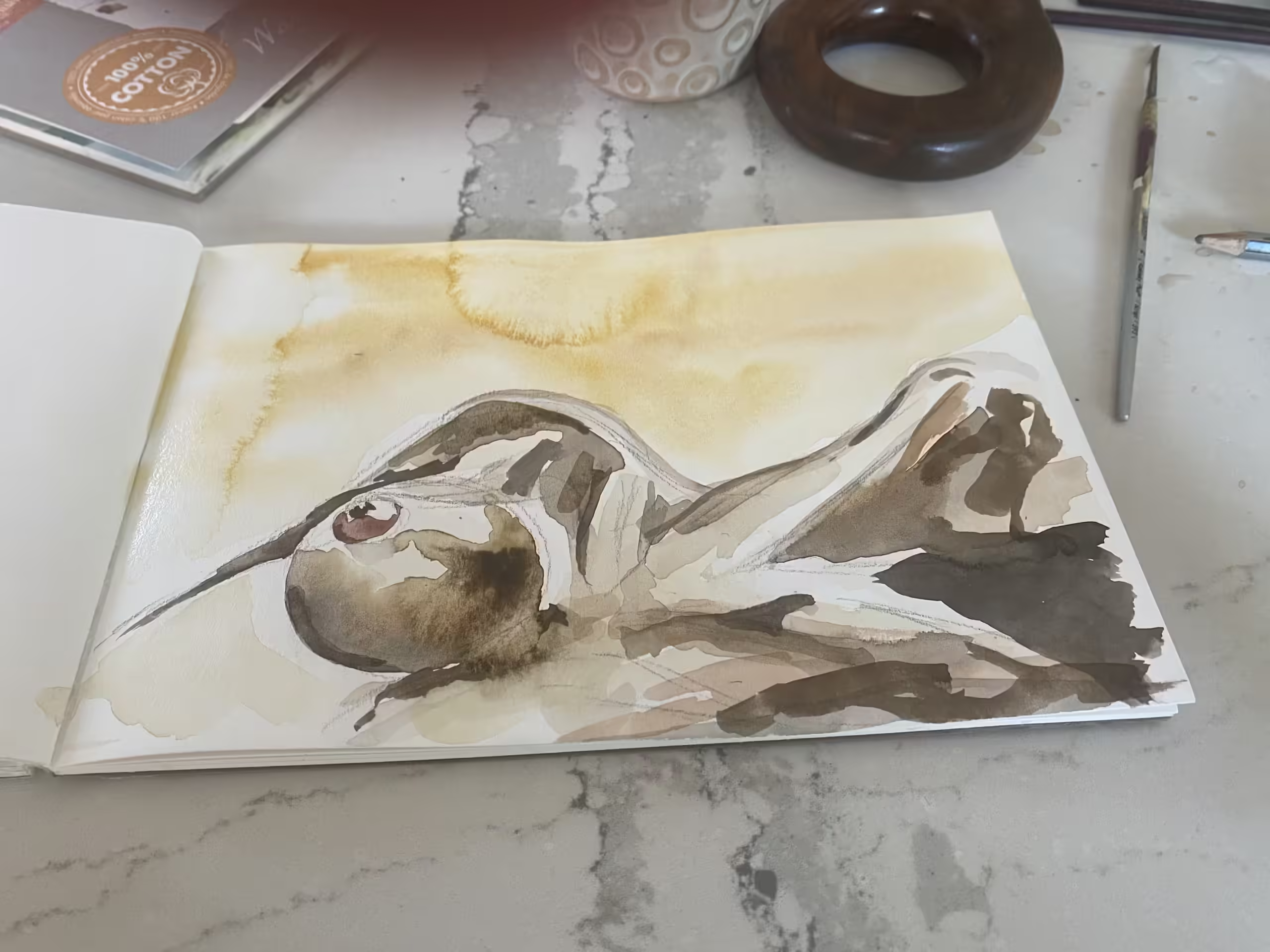“Trauma is not what happens to you, it is what happens inside you in the absence of an empathetic witness.” – Peter A. Levine
A cancer diagnosis is a seismic event. It doesn’t just land in the body—it reverberates through the mind, the heart, and the spirit. Fear, uncertainty, anger, sadness, grief—sometimes all of it collides at once. In that moment, what many people long for is not another brochure about treatment or a well-meaning assurance that “everything will be okay,” but something far deeper and rarer: to be seen, heard, and understood without judgment.
This is the role of the empathetic witness.
In this post, we’ll explore what it means to be an empathetic witness for someone facing cancer, why this role is so important, where this approach can fall short, and how new innovations—such as AI companions that embody lived experience—are helping to bridge the gap.
What Is an Empathetic Witness?
The term empathetic witness refers to a person who sits alongside another’s pain, fear, or trauma with compassion, presence, and deep understanding. They don’t fix. They don’t minimize. They don’t turn away when things get hard.
For people with cancer, an empathetic witness might be:
- Another survivor who has “been there” and can hold space without flinching.
- A family member or friend willing to listen without rushing in with advice.
- A clinician or counsellor who not only treats but also truly hears the lived experience of illness.
The act of bearing witness is powerful. When someone looks you in the eye and says, “I see you. I’ve walked a version of this path. Your pain is real. You are not alone,” it can provide a kind of healing that medicine itself cannot.
In trauma psychology, the empathetic witness plays a crucial role in helping survivors process experiences and feel validated. In cancer, where patients often feel unseen or reduced to a diagnosis, this presence can be profoundly grounding.
The Power of Being Seen
Why does this matter so much?
Because cancer can be incredibly isolating. Friends may not know what to say. Family members may offer reassurance that, while well-intended, can feel dismissive (“you’re strong, you got this!”). Even doctors—focused on treatments and outcomes—often can’t make space for the full emotional weight of the journey.
An empathetic witness cuts through that isolation. They:
- Validate feelings: “Yes, it makes sense you’re terrified.”
- Normalize experiences: “I felt that way, too, when I lost my hair.”
- Hold space: Simply sitting in silence, allowing the tears or anger to come.
For the person with cancer, that kind of response can feel like oxygen. It restores dignity and reminds them that they are more than a patient—they are a whole person navigating an overwhelming storm.
The Constraints of the Empathetic Witness Model
As beautiful and necessary as empathetic witnessing is, it has real limitations.
1. Scarcity and Access
Not everyone has access to someone who can show up this way. Survivors who could fill this role are limited in number, often already stretched thin by their own recovery and lives. For newly diagnosed patients in rural or under-resourced areas, finding an empathetic witness can feel impossible.
2. Emotional Burden on Survivors
Empathetic witnesses are often survivors themselves. While their lived experience is invaluable, continually reopening the wound to hold space for others can be draining. Sometimes, it’s retraumatizing. Sometimes, it’s simply too much.
3. Mortality
There’s a hard truth here: cancer survivors can and do die. For those who’ve relied on them as guides, this can feel like another devastating loss. The very foundation of support—a fellow survivor’s presence—can vanish.
4. Discomfort and Vulnerability
Not everyone wants to talk to another person about their most vulnerable fears. Shame, cultural norms, or sheer exhaustion can keep people silent. Sometimes, even when the witness is available, the patient isn’t ready to engage.
5. Scalability
Ultimately, human beings can only support so many others at once. Cancer, however, is widespread and growing. According to the WHO, over 35 million new cancer cases are predicted in 2050, a 77% increase from the estimated 20 million cases in 2022. One-to-one human witnessing simply cannot meet this scale of need.
Why We Need to Think Differently
This isn’t to dismiss the role of the empathetic witness—it remains sacred and irreplaceable in many contexts. But if we want to truly address the widespread trauma of cancer, we need to think creatively about how to deliver the essence of empathetic witnessing—presence, validation, compassion—at scale.
And this is where technology, surprisingly, may offer a new way forward.
Enter AI Companions: A New Kind of Witness
The rise of artificial intelligence has sparked endless debate about machines replacing human relationships. But what if we considered AI not as a replacement, but as an extension of empathy?
AI companions, like AskEllyn, are built on the lived wisdom of survivors—real stories, real emotions, real hard-won lessons. They are designed not to diagnose or treat, but to support. To listen. To validate. To normalize the cancer experience in ways that echo what an empathetic witness does.
How AI Companions Address the Constraints
- Scalability: Unlike human witnesses, AI can support thousands—even millions—simultaneously, without burnout or limits on time zones and geography.
- Accessibility: Available 24/7, anywhere in the world, in multiple languages, AI companions break down barriers of location, timing, and availability.
- Non-judgmental Space: People can ask an AI companion questions they might feel too embarrassed to ask another human—about intimacy, body changes, fear of death, or even resentment toward loved ones.
- Consistency: AI companions don’t tire, don’t flinch, and don’t disappear. They are always there, ready to listen and respond with compassion.
- Survivor Wisdom Preserved: Because they are trained on survivor knowledge and experience, AI companions carry forward the insights of empathetic witnesses—even when those witnesses are no longer here.
AskEllyn: An Empathetic Witness at Scale
AskEllyn is one such AI companion, designed specifically for people affected by breast cancer. Created by and based on the lived experience of a breast cancer survivor, AskEllyn speaks in the voice of someone who has walked through diagnosis, treatment, recovery, and survivorship.
When someone chats with AskEllyn, they’re not just speaking to a machine. They’re engaging with the distilled, lived experience of Ellyn, a survivor who has “been there.” The difference is that Ellyn’s voice and experience is available anytime, anywhere, without exhaustion, judgment, or absence.
AskEllyn does not replace human empathy—it extends it. It takes the qualities of the empathetic witness and makes them accessible to anyone who needs them, whenever they need them.
The Human + AI Model So, what does the future of empathetic witnessing in cancer care look like? Likely, it’s not human or AI, but human and AI.
Humans will always be essential for the depth of relationship, the warmth of physical presence, and the unique resonance of lived empathy.
AI can fill the gaps, provide immediate support, and carry the weight of scalability that humans cannot.
Together, they create a continuum of care where no patient has to sit alone in their fear.
Beyond Cancer: A Wider Implication
While we’re focused here on cancer, the model of empathetic witnessing—and its AI extension—applies to many areas of trauma: other diagnosis beyond cancer such as Parkinson’s Disease, grief, mental health, addiction, chronic illness, caregiving. Wherever human suffering exists, the need to be seen and validated follows.
If we can reimagine empathetic witnessing through both human and AI lenses, we can bring comfort and connection to millions who might otherwise suffer alone.
Final Thoughts
Cancer may be a disease of the body, but its ripples touch the heart and spirit just as deeply. In those moments of fear, uncertainty, and grief, the presence of an empathetic witness—a human being willing to sit with us in our darkest hour—can be transformative.
But the reality is that humans alone cannot meet the scale of need. Survivors are precious but finite. Support systems are uneven. And the trauma of cancer is vast.
That’s why it’s time to expand what we mean by “empathetic witness.” With AI companions like AskEllyn, we now have tools that can preserve survivor wisdom, extend empathy at scale, and ensure that no one has to navigate cancer feeling unseen.
The future of cancer care is not just about curing disease—it’s about healing the human experience of illness. And that starts with being witnessed, whether by a fellow survivor across a coffee table or by an AI companion on a smartphone at 2 a.m.
Because in the end, what every person facing cancer deserves is this:
to be seen, to be heard, and to never walk alone.




